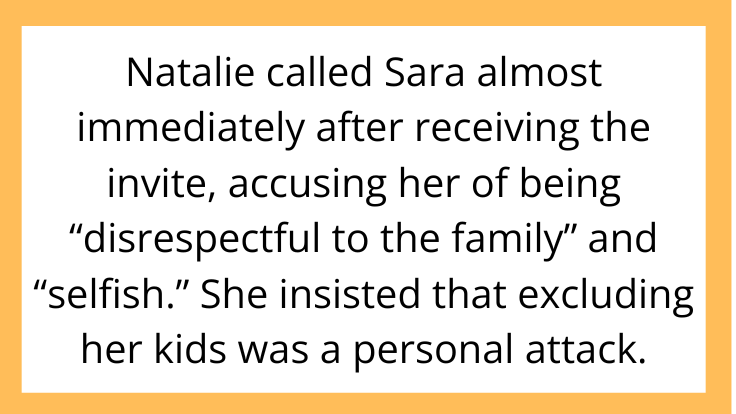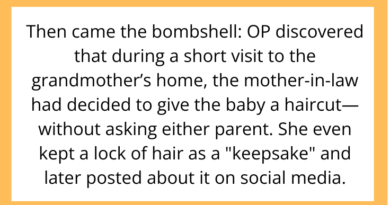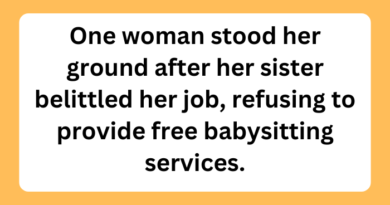AITAH for Telling My Sister Her Kids Aren’t Welcome at My Wedding?
Weddings are meant to be joyful, personal celebrations—but when family expectations clash with personal boundaries, drama often follows. In today’s real-life inspired AITAH scenario, we dive into a wedding dilemma that’s sparked major debate: Is it cruel to enforce a “no kids” rule at your own wedding, even if it upsets your sister?
Let’s unpack the story that’s making waves.
The Situation: A Child-Free Wedding Sparks Tension

A 32-year-old bride-to-be—let’s call her Sara—shared on r/AITAH that she’s been planning her dream wedding for over a year. From the venue to the dress to the dinner menu, she’s been meticulous. One non-negotiable? The wedding will be child-free.
Sara and her fiancé agreed on this early in the planning process. They envisioned a formal evening ceremony followed by a reception with cocktails, speeches, dancing, and a DJ that plays well into the night. They didn’t think it would be appropriate or safe for children, especially toddlers and infants.
However, her older sister, Natalie, has three kids under the age of eight—and she was furious when she got the invitation clearly stating, “No children, please.”
A Heated Family Fallout

Natalie called Sara almost immediately after receiving the invite, accusing her of being “disrespectful to the family” and “selfish.” She insisted that excluding her kids was a personal attack.
“She told me I’m making her choose between her family and my wedding,” Sara wrote in her post. “She said if her children aren’t welcome, then neither is she.”
Sara tried to explain that it wasn’t about her sister’s kids specifically. It was a general rule applied to all guests—no children, no exceptions.
But that explanation didn’t smooth things over. Their mother got involved and encouraged Sara to “just let it go,” arguing that family should come first.
Now Sara is stuck. She doesn’t want to back down on a core decision for her wedding, but she doesn’t want to destroy her relationship with her sister either. So, she turned to Reddit and asked: AITAH for sticking to my child-free wedding even if it means my sister won’t come?
Why People Are So Divided on Child-Free Weddings

In Favor of Sara: “Your Wedding, Your Rules”
Reddit users mostly rallied behind Sara.
“Child-free weddings are valid,” one commenter wrote. “It’s your day, not a family reunion.”
Many people shared that kids can unintentionally cause disruptions at weddings—crying during vows, running around during dinner, or needing constant attention. For couples who want a formal or adult-centered event, it’s completely reasonable to ask that guests leave their children at home.
Plus, Sara was consistent. She didn’t make exceptions for some families while excluding others.
In Defense of Natalie: “Family Comes First”
Still, not everyone agreed. Some commenters argued that weddings are about bringing loved ones together—not about strict guest list enforcement.
“Natalie’s not just any guest—she’s your sister,” one post read. “Making her choose between attending and leaving her kids behind could cause long-term resentment.”
Others pointed out that arranging childcare can be expensive or unavailable, especially for parents of multiple young kids. What seems like a simple rule to Sara may feel exclusionary and stressful to Natalie.
The Real Issue: Boundaries vs. Entitlement
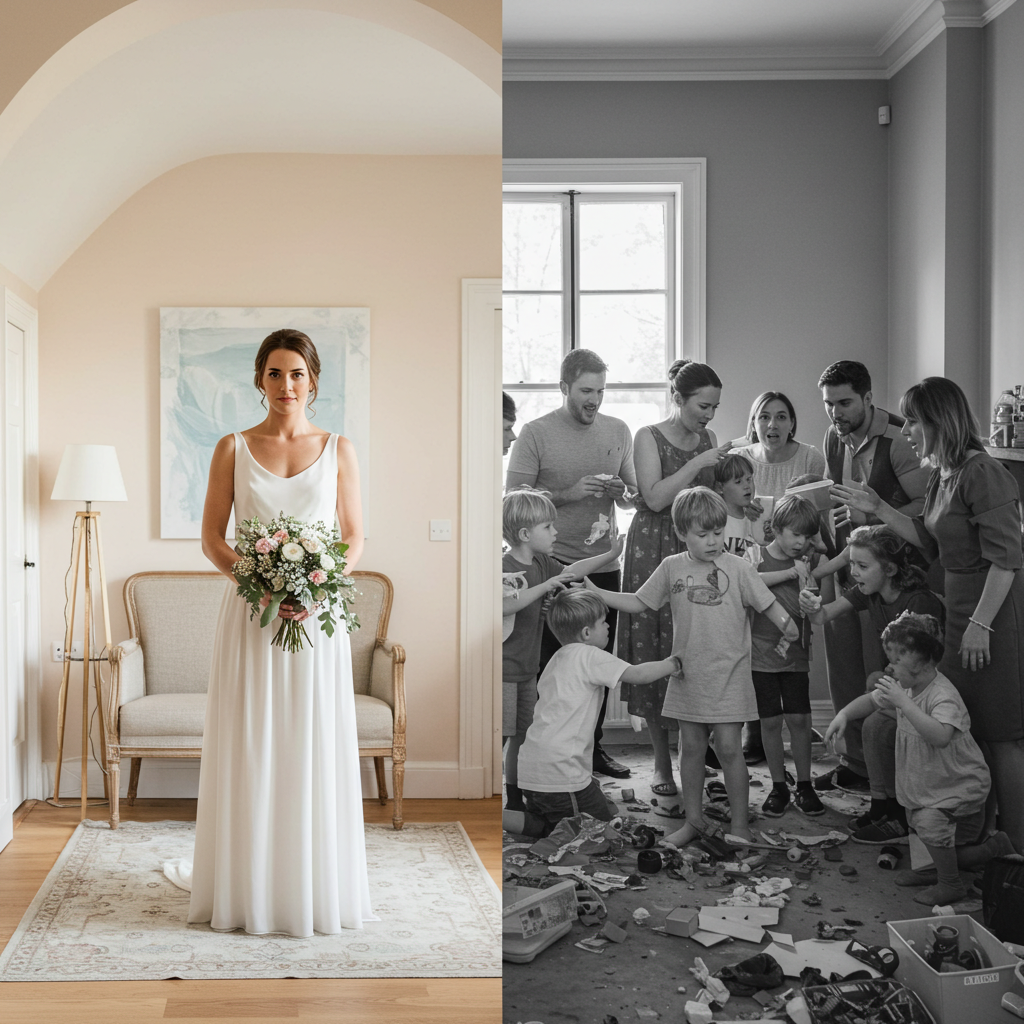
This AITAH story isn’t just about kids at weddings—it’s about the tension between individual choice and family expectations.
Sara believes in setting boundaries. It’s her wedding, and she should be allowed to design the experience she wants. Natalie, on the other hand, feels that family comes with certain rights—and inclusion is one of them.
So who’s in the right?
That depends on how you weigh personal autonomy versus family unity. Neither woman is necessarily “wrong,” but both are experiencing the consequences of a values clash.
How Could This Have Been Handled Better?

For Sara:
-
She might have had a one-on-one conversation with Natalie before sending invitations to soften the blow.
-
Offering to help arrange childcare or cover part of the cost could have been a gesture of goodwill.
-
Communicating that the rule applies to everyone (not just Natalie’s kids) can help reduce the perception of a personal slight.
For Natalie:
-
Recognizing that attending the wedding is optional, and declining doesn’t need to come with guilt-tripping or ultimatums.
-
Accepting that her sister’s boundaries don’t equate to rejection of her children.
-
Making her own choice without demanding the event change to suit her preferences.
What This Teaches Us About Family and Boundaries
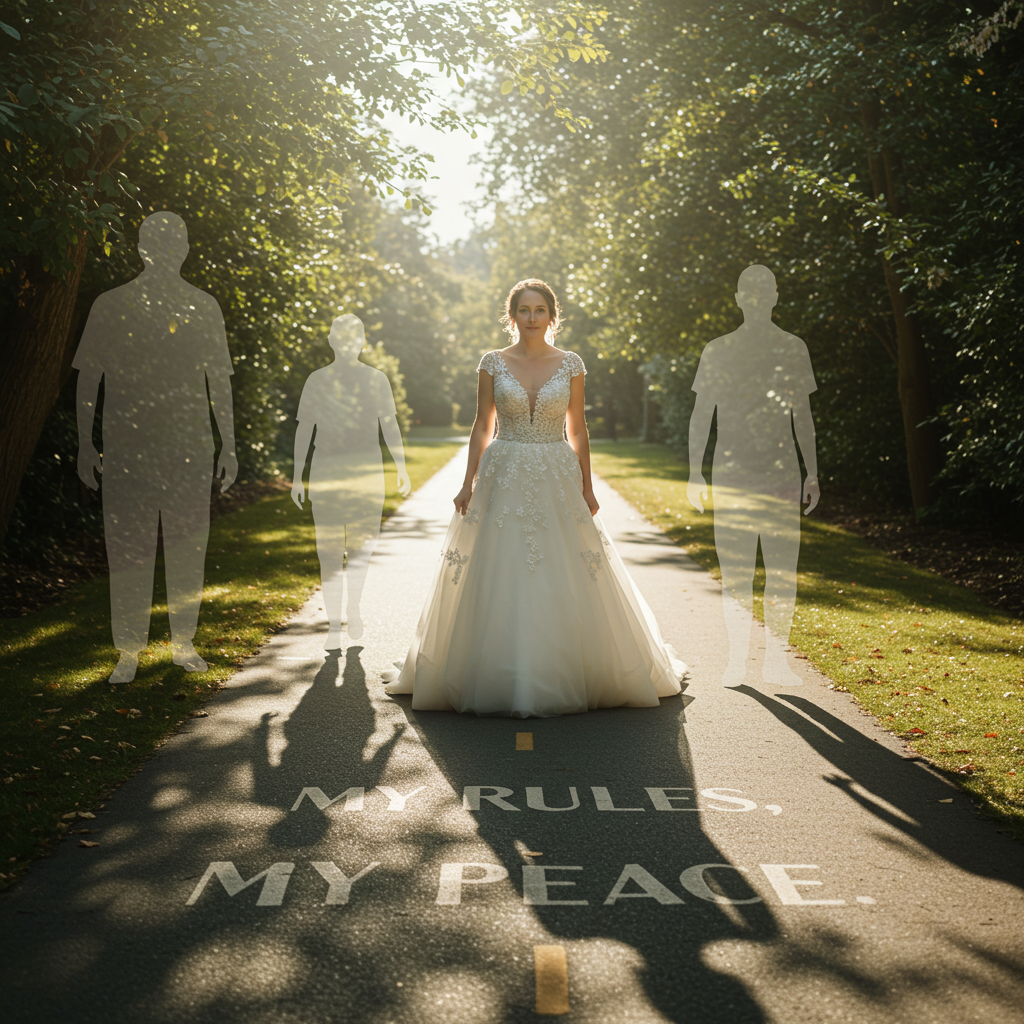
The key takeaway from this AITAH dilemma is simple but powerful: Setting boundaries, especially in families, will always come with emotional risk. But that doesn’t mean you’re wrong for doing it.
Weddings are personal. Not every decision will please everyone. And while it’s painful to disappoint a loved one, it’s equally valid to protect your peace on a once-in-a-lifetime day.
Sara isn’t saying she doesn’t love her nieces and nephews—she’s simply saying they aren’t a fit for this one occasion. That’s not villainous. That’s honest.
